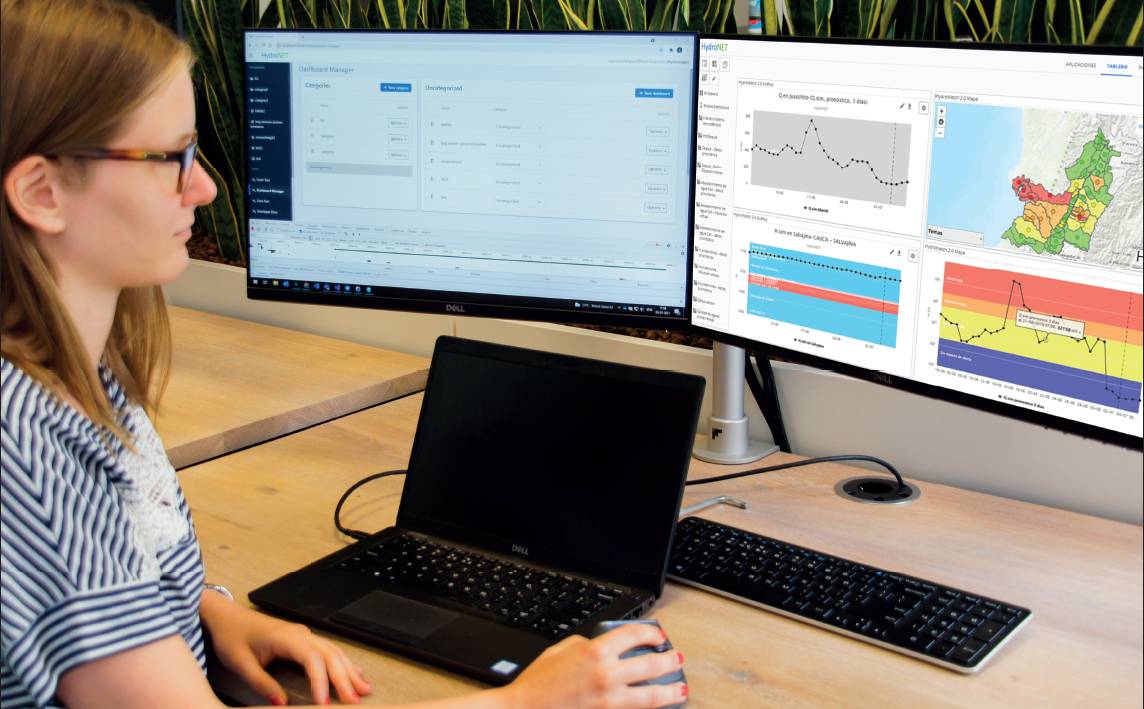Innovation Showcase | In partnership with Arcadis
Optimising data use
How data is revolutionising the way the water industry makes crucial decisions.
The growing frequency of extreme weather events is influencing UK water industry leaders’ asset management and investment strategies.
“In the UK, we historically just talked about flooding. Now there are different challenges – we have water scarcity and sometimes the water is in the wrong part of the country to the place you might want it to be,” says Arcadis managing director for resilience in the UK and Ireland Sian Whittaker.
She adds that these new challenges have resulted in additional “regulatory pressure on water companies not to waste a single drop of water”.
 Hydronet can be customised to individual users’ needs
Hydronet can be customised to individual users’ needs
Water resilience and the reduction of sewer discharges were the focus areas for water companies when creating their five-year investment programmes for Asset Management Period 8, which runs between 2025 and 2030. Extensive data analysis was undertaken when creating these programmes to determine the best way of meeting these objectives.
Whittaker says the water industry has recognised the considerable benefits of using data for decision making, pointing to the rise of investment in data platforms in recent years. But she stresses that available data is not necessarily used or displayed in the most efficient way.
She says existing platforms have limited configurability, meaning that users cannot add as many layers of data as they want and cannot tailor the way the data is presented to their needs.
“One of the significant aspects of the adoption of digital platforms and use of analytics means that it requires new skills; that means embracing a more diverse workforce both within utilities and the supply chain.”
Arcadis’ Hydronet cloud-based decision support platform for water management is designed to provide a solution to these issues. Whittaker says Hydronet offers a number of benefits, but chief among them is that it is customisable. She explains: “It allows us to synthesise the information available as a set of clear dashboards, with users able to configure them in a way that reflects their specific needs.
“If my area of focus is understanding protection of assets rather than water flow, I can create a specific dashboard for that. Users can add as many layers of information as they want, so it provides a flexibility that other solutions don’t offer.”
She believes that the breadth of data that can be incorporated in Hydronet in combination with the way it is displayed will facilitate and improve the decision making process.
“Hydronet is an example of how being a global business allows us to bring value to the UK market,” says Whittaker.
She adds that it has been successfully implemented by water authorities and municipalities in the Netherlands, South Africa and Australia.
For example, in the Netherlands, Hydronet helped water authorities find solutions to reduce the high salinity content of tidal rivers in periods of drought when freshwater flows towards the sea are low.
“Hydronet can help the UK water industry develop better business cases for their investments. It can also help it deliver more sustainable solutions and social value,” Whittaker concludes.